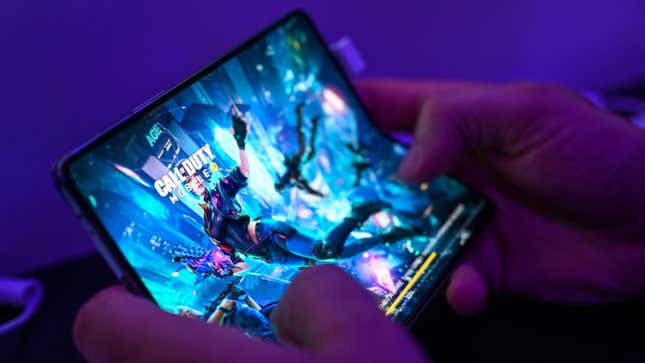People Who Strongly Identify as Gamers Are More Likely to Become Racist and Sexist
A new study finds that a psychological concept known as "identity fusion" makes some gamers prone to extremist thought.
EntertainmentEntertainment

People who strongly identify gamers and consider themselves a part of the online gamer community are susceptible to becoming sexist and racist, according to a new University of Texas at Austin study. This correlation has to do with a psychological phenomenon called “identity fusion,” which adds nuance to the argument that online video games don’t translate to real-life acts of violence.
Rachel Kowert, a co-author of the study, explained that identity fusion happens when one part of your identity overtakes all other aspects of your life, making it impossible to separate things like your individual identity (basic things like your name and gender) from your social identity (your hobbies and interests). Previous studies have found that identity fusion can lead to allegiance so strong that affected people become willing to risk it all—apparently, even death—for their fellow community members. “When the gamer identity is very core to who you are as a person, that seems to reflect what we call toxic gamer culture, tends to reflect more exclusion than inclusion,” Kowert told Vice, which first reported on the study.
Kowert’s interest in the topic was sparked after reading a 2019 Anti-Defamation League report that said “1 in 4 game players are exposed to white supremacist ideology in-game,” a statistic that she found to be “inordinately high,” Kowert told Jezebel in an email. Those findings have since been reflected in some real-life violence, including the 2019 Christchurch shooting in New Zealand and the supermarket shooting in Buffalo, New York, earlier this year; the manifestos of both shooters mentioned gaming. “This so-called ‘gamification of violence’ has definitely sparked new interest in this space,” Kowert said.
The study found that the correlation between gaming and extremist behavior was most prominent among those who also said they were lonely and had anxious attachment styles. Because of this, the authors see building community around gaming as a “double-edged sword”—one where the sense of community that young men may be craving has the potential to serve as their gateway into extremist group thought and “radicalization.” After all, platforms like Discord and Steam are known to be filled with white supremacists looking for new recruits, not unlike the tactics used by self-described misogynist Andrew Tate to build his own women-hating army.
However, the study didn’t find a huge gender disparity when it comes to being susceptible to identity fusion, which seems to reflect the overall gender breakdown of the gaming community, which is roughly 45% female and 55% male, according to Statista. “This is notable, as previous research has found significant gender differences between who identifies as a ‘gamer’ and who does not, with male players being more likely to adopt this identity,” Kowert told Jezebel.
While Kovert and her colleagues found the likelihood of extremism to be strongest for those who play Call of Duty (the only other gaming community the researchers examined was that of Minecraft), she also suggested that any video game ecosystem could be prone to this. “I don’t think it’s necessarily about content but about the community in which you’re being immersed,” she told Vice. She also emphasized that this study is based on a small group, and should not be extrapolated to demonize all gamers.
Now that Kowert and her team have been able to identify these connections between identity fusion and extremism, she remains hopeful that a shift in gaming culture can occur. Take This is working with the Department of Homeland Security and other groups to develop “more proactive, rather than reactive, solutions to the normalization of hate in gaming cultures,” she told Jezebel.
She added: “While culture change is slow, it is not impossible.”